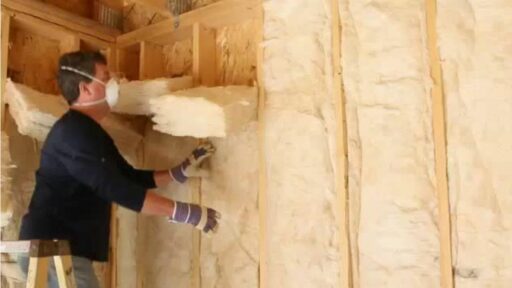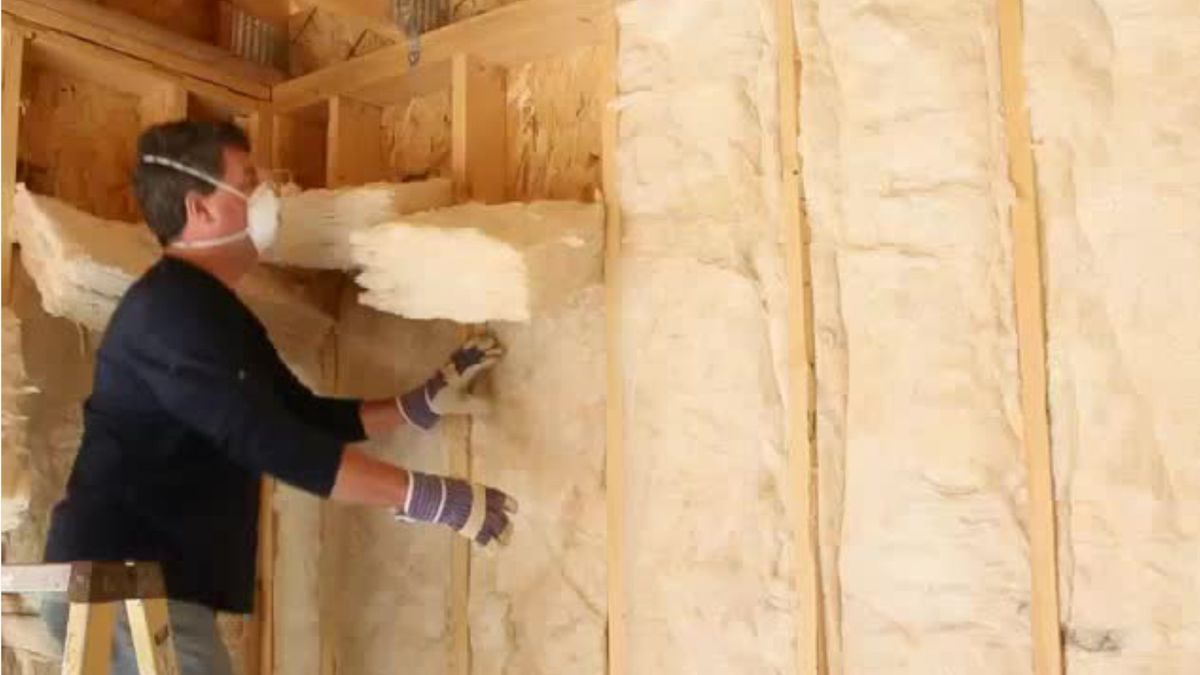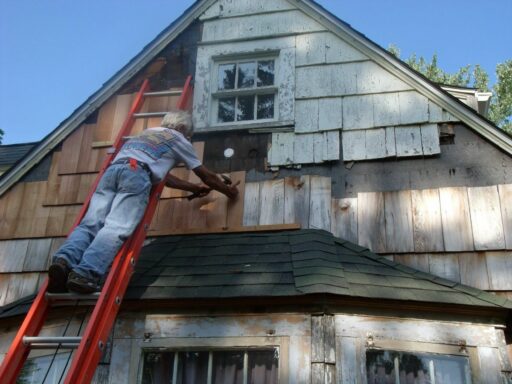When considering the addition of insulation to your home, hiring the right contractor is essential to ensure a quality job. It’s important to vet potential contractors thoroughly to make sure they meet your specific needs and adhere to professional standards. To assist you in making an informed decision, here are five critical questions to ask insulation contractors before hiring one for your project.
Key Takeaways
- Verify the contractor’s credibility through client references to assess their reputation and quality of work.
- Ensure the contractor has adequate liability insurance to protect against any potential damages or accidents.
- Confirm that the technicians employed by the contractor are properly licensed, ensuring compliance with industry standards.
- Inquire about the contractor’s experience with projects similar to yours to gauge their expertise and capability.
- Understand the warranty and coverage offered by the contractor to know what is protected once the insulation is installed.
1. Client References

Before hiring an insulation contractor, it’s crucial to check their client references. This step is essential for understanding the contractor’s ability to deliver quality work and maintain professionalism throughout the project. Request a list of previous clients with projects similar to yours and consider the following points when contacting them:
- Quality of workmanship
- Timeliness of completion
- Communication and responsiveness
- Professionalism of the crew
- Overall satisfaction with the finished product
Ensure to inquire about the contractor’s adherence to the budget and whether the clients would consider hiring them again. Also, ask if the project was completed on schedule and if they were satisfied with the quality of work.
In addition to personal references, review online feedback on platforms like Google, Yelp, and the Better Business Bureau. While online reviews can offer insights, they may not always be reliable. Direct communication with past clients can provide a more accurate picture of the contractor’s performance.
2. Liability Insurance

When hiring an insulation contractor, it’s crucial to ensure they have adequate liability insurance. This insurance is essential as it provides protection for your property in the event of accidental damage during the insulation process. Additionally, verify if the contractor has workers’ compensation insurance, which covers any injuries that their employees might sustain on the job.
- Liability Insurance: Protects against property damage
- Workers’ Compensation: Covers employee injuries
It’s not just about having insurance; it’s about having the right coverage to safeguard your interests during the insulation project.
Always ask for proof of insurance and confirm that the coverage is current and sufficient for the scale of your project. This step is a non-negotiable aspect of contractor evaluation and ensures that both parties are protected in case of unforeseen incidents.
3. Licensed Technicians

Ensuring that the insulation contractor you hire has licensed technicians is crucial for both the quality of the work and your peace of mind. Licensed professionals are more likely to adhere to building codes and industry standards, providing you with a service that is not only reliable but also compliant with local regulations.
When discussing with potential contractors, ask for their licensing information and verify it with your local building department or licensing board. This step is essential to confirm that the technicians working on your property are qualified to handle the specific type of insulation work required.
It’s important to remember that a license is not just a piece of paper; it’s a guarantee of the technician’s expertise and commitment to their craft.
Additionally, consider the following points when evaluating a contractor’s licensing status:
- The validity of the license in your state or region.
- Any additional certifications that may indicate specialized skills or knowledge.
- The contractor’s history of adherence to safety standards and regulations.
By taking the time to ensure that your insulation contractor employs licensed technicians, you’re investing in the long-term performance and safety of your home’s insulation.
4. Project Experience

When considering an insulation contractor, project experience is a critical factor. A contractor’s history can give you insight into their capability and reliability. Ask for examples of past projects, especially those similar to yours, to gauge their expertise.
- Have they worked on projects of similar scale and complexity?
- Can they provide contact information from previous clients for references?
- What challenges have they faced in past projects, and how did they overcome them?
It’s essential to understand the depth of a contractor’s experience. This includes the number of years they’ve been in business, the variety of projects they’ve handled, and their proficiency with specific materials or insulation techniques.
Additionally, inquire about the project duration and potential issues that may arise. A seasoned contractor should be able to anticipate challenges and address them proactively, ensuring a smooth project flow.
5. Warranty and Coverage

When selecting an insulation contractor, always inquire about their warranty and coverage policies. A trustworthy contractor will offer a warranty that covers both the materials used and the labor performed, ensuring that any defects in installation or material failures are addressed without additional costs to you.
The terms of the warranty are crucial. Confirm the duration of the coverage and what specific aspects of the installation are included. Here’s a brief overview of what to look for in a warranty:
- Duration: How long does the warranty last?
- Scope: What does the warranty cover? (e.g., materials, labor)
- Limitations: Are there any exclusions or actions that could void the warranty?
It’s essential to understand the warranty details to protect your investment and ensure long-term satisfaction with the insulation work.
Remember, a warranty is more than just a piece of paper; it’s a commitment from the contractor to stand behind their work. Make sure you are comfortable with the warranty terms before making a hiring decision.
Conclusion
Choosing the right insulation contractor is a critical step in ensuring the comfort, energy efficiency, and safety of your home. By asking the right questions, conducting thorough interviews, and doing your due diligence, you can find a contractor who is experienced, reputable, and well-suited to your project’s specific needs. Remember to request references, verify insurance and licensing, and get detailed written quotes. Take your time to make an informed decision, as the right contractor will not only provide quality workmanship but also stand behind their work with solid warranties and post-installation services. Ultimately, the effort you put into selecting the best insulation contractor will pay off in the long-term satisfaction and performance of your insulation investment.
Frequently Asked Questions
How can I find a reliable insulation contractor?
Start by asking friends and neighbors for recommendations or search through contractor associations such as The Heating, Refrigeration and Air Conditioning Institute of Canada, Renomark, or The Technical Standards & Safety Authority (TSSA). Additionally, conducting interviews and asking for client references can help you assess the contractor’s reliability.
What should I consider before insulating my roof or attic?
Consider whether you’re insulating your roof or attic, your technical knowledge, the amount of insulation needed for your climate zone, and which materials are the most cost-efficient. Doing thorough research or consulting with a professional can guide your decision.
What are important questions to ask a potential insulation contractor during an interview?
Ask about client references, general liability insurance, whether they hire licensed natural gas technicians, their experience with similar projects, the warranty provided and its coverage, if they handle required work permits, and if they offer post-installation services.
What are some red flags to watch out for when hiring an insulation contractor?
Be cautious of contractors who are unwilling to provide a detailed contract including work details, costs, and timeline. Also, a lack of references or reviews can be a red flag, so always do your due diligence by checking their reputation and workmanship.
Why is it important for an insulation contractor to be licensed and insured?
A licensed and insured contractor meets industry standards and is held accountable if anything goes wrong during the installation process. This provides you with assurance that the work will be performed professionally and with a certain level of protection.
How does the R-value affect my choice of insulation, and should I consider professional installation?
R-value measures the insulation’s effectiveness; however, it is tested under ideal conditions. The actual performance can vary due to installation quality and real-world conditions. Professional installation ensures personalized recommendations and proper application.




